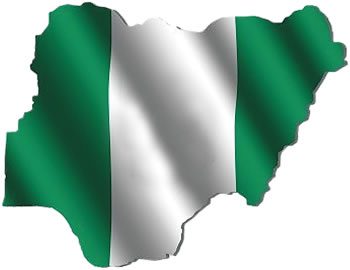As Nigerians celebrate Eid al Adha on Sunday, Muslims are complaining of high prices of livestock, and food as well as low patronage, while politicians are preaching peace and harmony in a country divided along religious and ethnic lines.
President Muhammadu Buhari flew into Daura, his home town in Northwest Katsina state on August 8, 2019 where he is receiving guests ahead of the Muslim festival.
Eid-el-Kabir is an annual event observed by Muslims in which they sacrifice ram, sheep, cows and other livestock in fulfillment with one of the tenets of the religion.
But it has been complaint galore by Muslims who see the slaughtering of the traditional rams as becoming too expensive and sellers groan over low patronage.
Some residents of Maiduguri in Borno decried the hike in prices of ram.
Reports from Kasuwar Shanu and other various sale outlets in the metropolis, indicated that prices of the livestock have shot up by over 50 percent compared to last year.
A small-sized ram sells for US$50 (N18,000); a medium size goes US$100 (N35, 000) while a well-bred ram attracts between US$210 (N80, 000) and US$400 (N150, 000).
Malam Kabiru Umar, a ram dealer, said that prices hike was as a result of high cost of transportation and animal feeds.
He said that the animals were supplied to the market from some villages in Nigeria, Chad and Niger Republics.
Alhaji Shettima Ali, a resident, however, blamed the traders for the unilateral hike in prices.
At the Dei-dei Livestock Market and Dutse Market in Abuja, the prices of small, average and big rams at both markets ranged between a negotiable price of less than US$100 (N35,000) and US$400.
Sellers also complained of low patronage this year and expressed dissatisfaction with the low offers by some customers.
At Dei-dei market, a ram seller, Malam Munir Tanko, blamed the low patronage currently being witnessed in the ram market, to the state of the nation’s economy.
Mallam Idris Yamuna, another cattle seller at the Duste market decried the poor turnout of buyers and attributed it to lack of resources.
Some of the buyers groaned over what they called the skyrocketing prices of the livestock.
A buyer, Mr Akeem Adesola, said that he came to purchase a big ram but ended up with a small one because he couldn’t afford his choice due to its high price.
“I have visited many ram markets around town but I couldn’t buy any because of the high cost; that is why I came here, hoping it would be better,” he said.
Another prospective buyer, Mr Aminu Yunusa, pointed out that Allah did not put burden on anyone who could not afford the sacrifice.
According to him, it is obvious from all indications that the prices may be higher in the few hours remaining for the festival.
As the complaints hit the roof top, a Muslim Cleric, Jimoh Abdulwahab, advised adherents against slaughtering deformed animals for Sallah.
Abdulwahab of Nurulhudda Islamic Centre, Ilorin gave the advice on Saturday, explaining that only healthy animals and animals free of deformity and blemish can be used for Sallah.
Also Dr Ibrahim Usman, the Chairman, Nigeria Veterinary Medicine Association, Gombe State chapter, also advised Muslims to slaughter only healthy livestock for Eid-el-Kabir to avoid transmission of diseases.
He said slaughtering unhealthy animals is dangerous to human health, stressing that such act might lead to transmission of diseases from the animals to humans.
Food and clothes traders in seven major markets in Lagos have complained of low patronage.
Report from Balogun, Idumota, Docemo, Oluwole, Oyingbo, Iddo and Mile 12 markets indicate concerns over low patronage that had persisted for six years.
Mrs Aderonke Abiodun, a clothes seller at Balogun, urged the federal government to take urgent action to address the harsh economic situation affecting the purchasing power of citizens.
“If you ask most traders, they will confirm to you that that era has long been forgotten and that sales had been dull for some years.’’
Mr John Peter, a food trader at Oyingbo, said the market had a large turnout of buyers but most were buying in smaller quantities than expected.
Traders at Bodija and Aleshinloye markets said the 2018 celebration witnessed better patronage.
According to Mrs Funmilayo Olusolape, who sells gift and household items at Aleshinloye market, there was not much trading activities as few people visited the market.
In spite of the challenges, politicians are heaping more tasks on the citizens, calling for building of peace, unity and harmony.
President Muhammadu Buhari advised Muslims to be tolerant and to continue to work for peace, unity, national integration and peaceful co-existence among Nigerians.
He said the greatest commitment to Islam is for Muslims to put the virtues of the religion into practice and make justice and righteousness their guiding principles.
The message is contained in a statement on Saturday by the president’s Senior Special Assistant on Media and Publicity, Malam Garba Shehu.
“We should be the mirror through which others see the virtues of our faith.
“Islam is a religion of peace and we should avoid violent extremist ideas that give Islam a wrong name because our conducts will leave more lasting positive impressions than what we say by word of mouth.”
Buhari regretted that activities of religious extremists were negatively affecting the image of Islam, calling on Muslims to always distance themselves from those preaching violence in the society.
“Violent extremism is the greatest challenge facing Islam today and the only way we can neutralise its evil influence is to distance ourselves from the activities and teachings of those who preach indiscriminate violence against innocent people.
MM/as/APA


